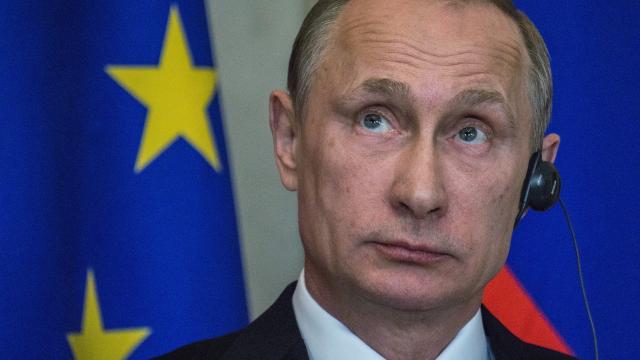With fears of government crackdowns looming from every corner of the globe, tech giants have to decide who they’re willing to piss off. Following a demand from Russia’s internet censor, Instagram has removed videos relating to bribery allegations made by the country’s most prominent activist. So far, YouTube hasn’t complied with the same request.
Photo: Getty
Alexei Navalny is a lawyer who’s spent much of the last decade opposing the Putin regime, and his efforts are often rewarded with gaol time. His attempts to run for office are regularly blocked on technicalities, but he uses his YouTube channel to highlight his investigations of corruption in the Russian government. Putin’s people rotate between tolerating Navalny’s provocations and selectively prohibiting them. Earlier this month, a Russian court decided that one video on YouTube went too far, and the country’s internet watchdog declared it, along with some of its source material that was posted to Instagram, must be blocked. The demand threatened to cause both social media networks to be completely blocked on Russian ISPs if the companies didn’t comply.
The YouTube video that was posted on February 8 consists of a report about Russian oligarch Oleg Deripaska‘s cosy relationship with Russian Deputy Prime Minister Sergei Prikhodko. Navalny collected several videos that were allegedly filmed aboard Deripaska’s yacht in Norway and posted to a woman named Nastya Rybka’s Instagram account. They are said to show Deripaska and Prikhodko consorting with escorts and generally being very chummy. Navalny used this footage to highlight what he called bribery at the highest levels of government. “An oligarch takes a top government official on a ride on his own yacht – that’s a bribe,” he said on YouTube. “An oligarch pays for all of this, including young women from escort agencies. Believe it or not, this is also a bribe.”
Deripaska claimed in a Russian court that the video violated his right to privacy and contained “outrageous false allegations.” After Deripaska won an injunction, Russia’s internet watchdog Roskomnadzor demanded that the Instagram posts and YouTube video be taken down. Rybka removed several of the videos from her account, but two posts remained and according to the BBC, Instagram stepped in and removed the remaining videos, neither of which were posted by Navalny. We’ve reached out to Instagram for a statement but have not received a reply. A spokesperson from the Facebook-owned social network told CNBC:
When governments believe that something on the internet violates their laws, they may contact companies and ask us to restrict access to that content. We review such requests carefully in light of local laws and where appropriate, we make it unavailable in the relevant country or territory.
We are transparent about any content restrictions we make for government requests with local law in our Transparency Report.
A look at Facebook’s most recent Transparency Report shows that it restricted 195 pieces of content between January and June 2017. It cites “violating local laws related to extremism, illegal gambling, and the promotion of self-harm and suicide” as the reason for the restrictions.
“Instagram decided to comply with Russian illegal censorship requests and deleted some content about oligarch Deripaska,” Navalny tweeted on Thursday. “Shame on you, @instagram!”
YouTube has not responded to our request for comment on whether it has decided to comply with the government’s request to remove Navalny’s video. Roskomnadzor apparently hasn’t directly threatened YouTube with having its service completely blocked, but Russian ISPs are required to comply with its orders. A spokeswoman for the Russian Association for Electronic Communications explained to the BBC that “It’s impossible for internet providers to block certain pages on Instagram and YouTube”, so it stands to reason that an ISP would have to block YouTube to fulfil its obligation to the agency.
This all puts YouTube and its parent company Google in a precarious place. Lawmakers on both sides of the aisle in the US recently criticised Apple’s capitulation to Chinese censors, and Silicon Valley companies are acutely sensitive to the threats of regulation that have grown in Congress. At the same time, taking a stand could cause YouTube to lose its user base in Russia. And in the grand scheme of Google’s former “don’t be evil” motto, it risks further tarnishing its image with the general public.
Here’s the video in question:
